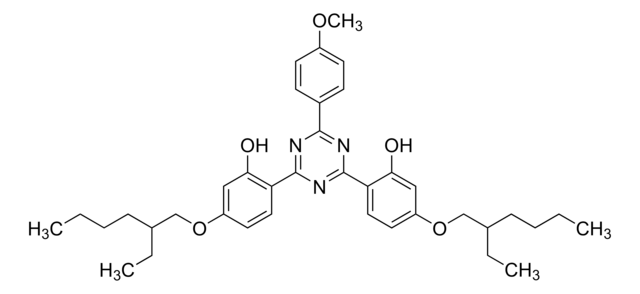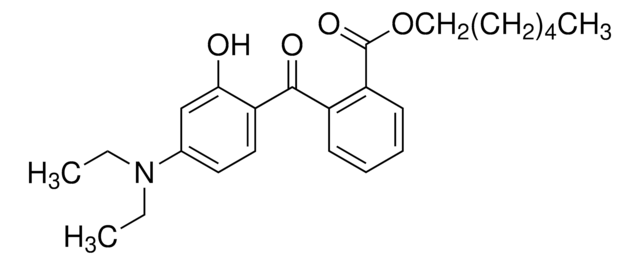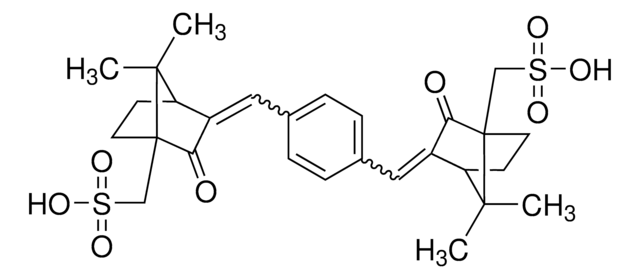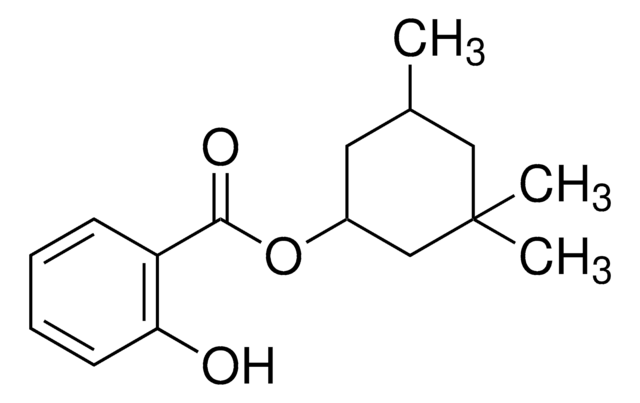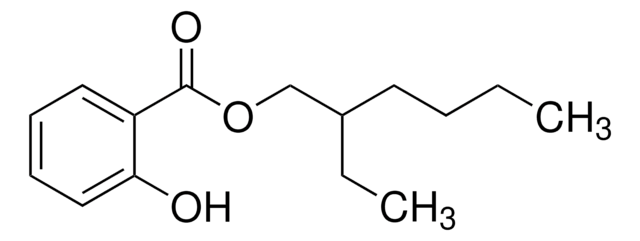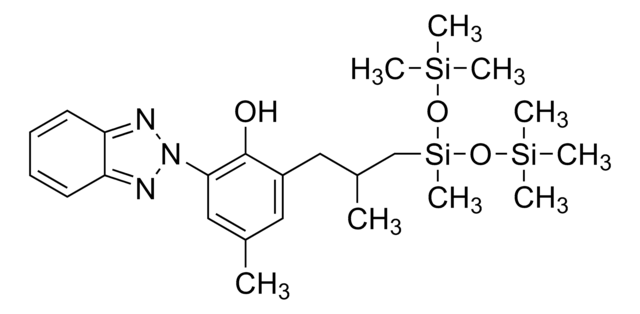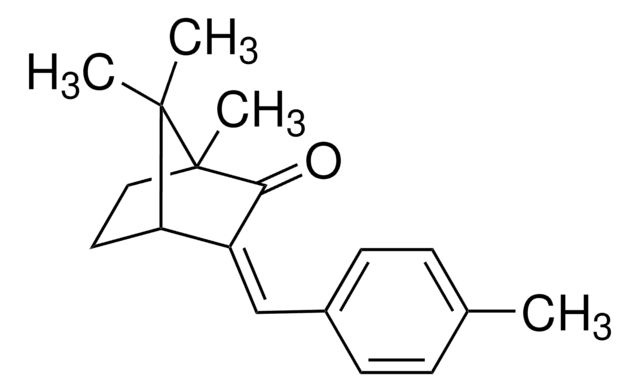93465
Ethylhexyl triazone
analytical standard
Synonym(s):
2,4,6-Trianilino(p-carbo-2-ethylhexyl-1-oxy)-1,3,5-triazine, Tris(2-ethylhexyl) 4,4′,4″-(1,3,5-triazine-2,4,6-triyltriimino)trisbenzoate
About This Item
Recommended Products
grade
analytical standard
Quality Level
Assay
≥98.0% (HPLC)
shelf life
limited shelf life, expiry date on the label
technique(s)
HPLC: suitable
gas chromatography (GC): suitable
impurities
≤5% water (calc. from elemental analysis)
mp
128-132 °C
application(s)
cleaning products
cosmetics
environmental
food and beverages
personal care
format
neat
SMILES string
CCCCC(CC)COC(=O)c1ccc(Nc2nc(Nc3ccc(cc3)C(=O)OCC(CC)CCCC)nc(Nc4ccc(cc4)C(=O)OCC(CC)CCCC)n2)cc1
InChI
1S/C48H66N6O6/c1-7-13-16-34(10-4)31-58-43(55)37-19-25-40(26-20-37)49-46-52-47(50-41-27-21-38(22-28-41)44(56)59-32-35(11-5)17-14-8-2)54-48(53-46)51-42-29-23-39(24-30-42)45(57)60-33-36(12-6)18-15-9-3/h19-30,34-36H,7-18,31-33H2,1-6H3,(H3,49,50,51,52,53,54)
InChI key
JGUMTYWKIBJSTN-UHFFFAOYSA-N
Looking for similar products? Visit Product Comparison Guide
General description
Application
- Cosmetic samples using ultra-high-performance supercritical fluid chromatography (UHPSFC).
- Topical skincare products using normal-phase high-performance thin layer chromatography (HPTLC) and densitometry.
- Environmental samples using liquid chromatography-tandem mass spectrometry (LC-MS/MS).
Packaging
Hazard Statements
Hazard Classifications
Aquatic Chronic 4
Storage Class Code
11 - Combustible Solids
WGK
WGK 1
Flash Point(F)
584.6 °F
Flash Point(C)
307 °C
Choose from one of the most recent versions:
Already Own This Product?
Find documentation for the products that you have recently purchased in the Document Library.
Customers Also Viewed
Our team of scientists has experience in all areas of research including Life Science, Material Science, Chemical Synthesis, Chromatography, Analytical and many others.
Contact Technical Service
